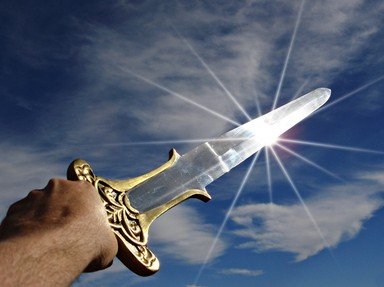Quiz Answer Key and Fun Facts
1. This battle took place between the Greeks and Persian invaders in 490 B.C. The Greek victory was important because it established the supremacy of Greek culture, which eventually led to Western Civilisation, a 2,500 year period that defined much of the world we know today. Name that battle.
2. In 1066, Harold the Saxon King of England, unsuccessfully and fatally attempted to fight off an invasion by William, Duke of Normandy. The societal changes that the Norman Conquest caused are said to be not only the most radical in Europe up until the First World War, but also the swiftest. Which battle was this?
3. In this face-off between the French and the English in 1429, the French were led by Joan of Arc, a teenage peasant. The French victory was important since it freed them from the yoke of future English rule, a rule of the type that caused civil strife in Ireland between the Catholics and the Protestants up until the early 2lst century. Which battle was this?
4. During the Spanish Conquests of Peru, 1532, a battle took place between the Incan Emperor Atahualpa, and the Conquistador, Pizarro, with the Spaniards trouncing the Incans. Spain was subsequently guaranteed a strong foothold in South America, introducing its culture, language and religion to change irreversibly the nature of the continent. Name the decisive battle.
5. In 1588 the English repelled an attempted Spanish invasion. Under Queen Elizabeth I, England was a Protestant power beginning to be reckoned with on the world stage. Had Spain succeeded in returning England to Catholicism, history would have been very different. The British Empire might never have emerged. This event is named "The Defeat of the Spanish _______?
6. Two generals, an Englishman, Wolfe, and a Frenchman, Montcalm, fought in a battle at Quebec City in 1759. While the victory went to Britain, both generals were killed. The culture of Canada's dominating colonial power was soon decided, with the French to this day striving to keep their identity in a primarily English-speaking Canada. Which key battle was this?
7. In 1815 during the Napoleonic Wars, a decisive battle took place in what is now Belgium. France was defeated by a coalition army, with the British contingent led by the Duke of Wellington. This victory ended Napoleon's designs for dominating Europe, and brought about a period of relative peace in Europe that lasted for almost 100 years. France, however, was never as powerful again. What battle was this?
8. 1862 saw one of the bloodiest battles in the American Civil War. Over 22,000 soldiers died or were wounded in one day. This battle turned the tide from a possible Confederate victory to a certain Union victory, thus giving Lincoln the confidence to issue the Emancipation Proclamation. Which battle was this?
9. This World War II battle was fought between German, Hungarian, Romanian and Italian armies on the one hand and the Soviet Army on the other. It culminated in a devastating defeat for the Axis. In Europe this battle, more than any other, is widely regarded as the turning point - in the sense that after this defeat Germany had no realistic prospect of winning World War II. Which battle was it?
10. During the Chinese Civil War this battle in 1948, between the Chinese Communist Party and the Nationalist Kuomintang - both fighting for control of China - was won by the Communists. The Nationalist defeat drastically altered the history of that beleaguered country. What was the name of this battle?
Source: Author
smeone
This quiz was reviewed by FunTrivia editor
bloomsby before going online.
Any errors found in FunTrivia content are routinely corrected through our feedback system.

